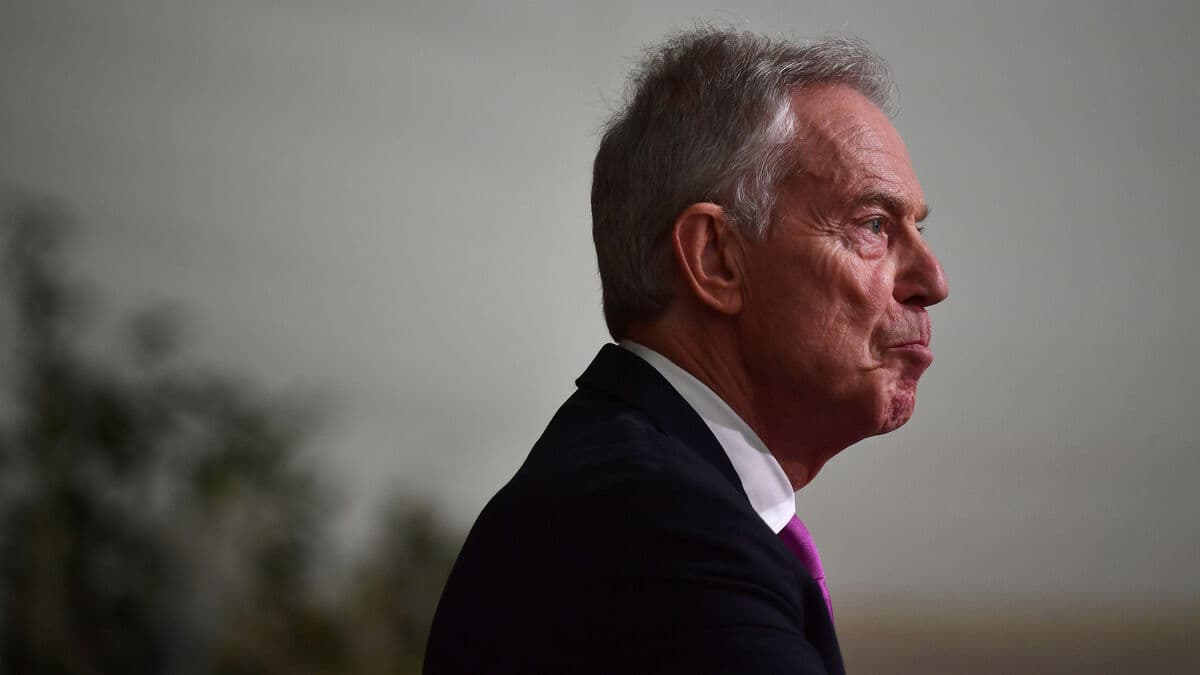The peace plan that the US and Israel have agreed on states that the Gaza Strip and its approximately two million inhabitants will in practice be placed under international control, with foreign forces and a "peace council" with US President Donald Trump as chairman.
According to the plan, Tony Blair will be part of that council. The British former Prime Minister is being given a key role when a bombed-out Gaza is to recover, rebuild and then be transferred back to Palestinian control again.
There under difficult years
Tony Blair was appointed international Middle East envoy in 2007, on a mission from a quartet: the US, Russia, the EU and the UN.
When he resigned eight years later, few steps had been taken towards lasting peace and a two-state solution.
The Israeli government under Benjamin Netanyahu showed little or no willingness to compromise. Illegal settlements grew on the occupied West Bank. The Palestinians were still divided between the West Bank and Hamas-ruled Gaza. Israel and the terrorist-stamped Hamas had just fought a 50-day war.
He was responsible for a colossal failure during the many years he was the quartet's special envoy, says Nomi Bar-Yaacov, Middle East expert at the Geneva Centre for Security Policy, to AP.
Negotiated recently
From the Palestinian side, Blair was accused of having worked in Israel's and the US's interests. He himself argued that the mandate had been too limited.
Later, Tony Blair was involved in the historic Abraham Accords, where the Trump administration in the US got Bahrain, the United Arab Emirates and Morocco to normalize their relations with Israel. The agreements, however, sparked popular discontent in large parts of the Arab world, among those who believed that the Palestinians were being sidelined.
"Rather not"
The 72-year-old Blair's legacy is largely characterized by his decision to participate in the US invasion of Iraq in 2003 under the false premise that the country had acquired nuclear weapons.
A Gazan who AP talks to says that the Briton is "hated throughout the region". Another says he has "Iraqi blood on his hands".
"Blair? Rather not", writes the UN's special rapporteur for the Palestinian territories, Francesca Albanese, on social media. She suggests, sarcastically, that they can "meet in The Hague" instead, referring to the International Criminal Court (ICC).
On the other hand, several analysts point to Tony Blair's perhaps greatest diplomatic achievement: the Good Friday Agreement in 1998 - a compromise-filled and fragile peace agreement after decades of bloody and religiously charged conflict in Northern Ireland.
Born on May 6, 1953, in Edinburgh, Scotland. Was the UK's Prime Minister for ten years, 1997-2007.
Was elected leader of the Labour Party in 1994, after predecessor John Smith died. Led the party on a "third way" where social democratic ideals would be shaped from a growing global market economy.
His time in power was characterized by uninterrupted growth and major constitutional reforms. It was also characterized by foreign policy commitments: first the Good Friday Agreement in Northern Ireland in 1998 and military interventions in Kosovo and Sierra Leone - and later a leading role in the US's war on terror and the wars in Afghanistan and Iraq, which sparked more discontent.
The handling of the invasion of Iraq, with allegations of weapons of mass destruction that proved to be incorrect, led to further criticism and investigation after Blair's resignation in 2007.
Source: Encyclopedia Britannica, AFP






